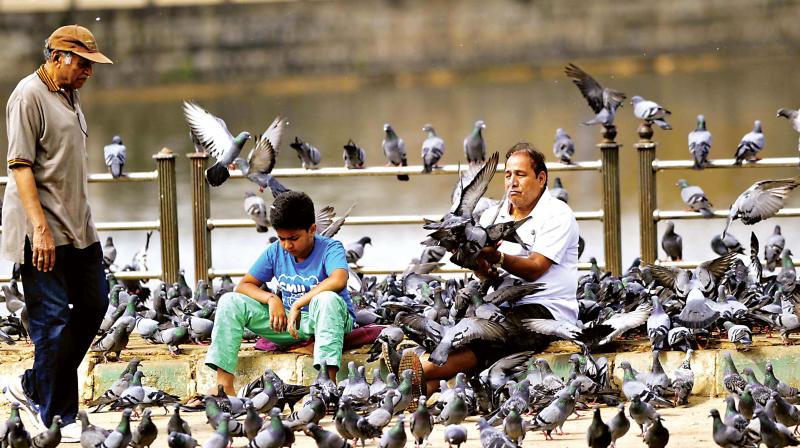Beware, pigeon droppings could lead to allergies

Bengaluru: Some feed pigeons out of the belief that it would bring prosperity or wash off their sins, blissfully unaware that its increasing population was destroying the food chain of other birds and the ecosystem. Experts point out that the alarming rise in population of pigeons in the city was due to easy availability of food.
Expressing concern, Harsha, a bird expert, said, “Pigeons do not require a special place for nesting. They mostly build their nests on rooftops and windowpanes and not necessarily on trees.
Pigeons are growing at a rate of 20 per cent monthly, which is alarming as it is destroying the food chain of other birds like myna, Asian koel and crows.”
Food chain regulates the balance of each species based on their reproduction. Due to urbanisation, predatory birds which feed on pigeons have dwindled. Moreover, Blue Rock Pigeon which nests on the availability of food in the wild, reproduce at a faster rate due to the easy availability of food in urban areas.
“Shikra, predatory bird nests on trees and feed on pigeons. Due to the less number of trees in the urban areas, Shikra is not usually seen, hence the number of pigeons multiply. We cannot see Outstack, another predatory bird which feeds on pigeons,” Harsha said.
Carrier of diseases
Experts believe that pigeon droppings are acidic and the bird itself is a carrier of diseases.
“Pigeon droppings are highly allergic to human beings and it leads to early exhaustion,” says Dr Rupa from Wildlife Rescue and Rehabilitation Centre.
Harsha claimed that pigeons are one of the causes of rise in cases of bird flu. “They are the carriers of diseases and once their faecal matter dries up it spreads in the air leading to the skin infection in children and respiratory problem amongst the elderly,” he added.
It may be noted that In 2001, a ban was imposed on feeding pigeons at London’s Trafalgar Square owing to health hazards.

